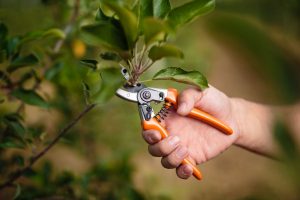“Most of us are aware of the impact of our daily lives on the environment, but it can be hard to know how to start making things better,” says Reigate estate agent, Robert Leech. And with “green” cleaning products usually costing considerably more than the more mainstream labels, looking after our planet can also seem like an expensive option. Happily, there are lots of ways to go green without breaking the bank, and here are some of the best:
Say No to the Unnecessary
We live in a world where we collect a lot of stuff we don’t really need, and expect companies to tempt us with freebies. One of the best – and cheapest -ways to look after the environment is to change the way we think about the material goods we bring into our homes. Sure, putting all the plastics and extra cardboard in the right recycling bin will help a little, but imagine how we could change the planet if we simply said no to things we don’t need.
Get More Exercise
The UK’s population is becoming increasingly obese, and it’s no surprise when you consider how easy it is for most of us to just jump in the car instead of using our legs. Every time we start our engines, we’re polluting the environment, so it’s a good idea to leave the car at home a couple of times a week and walk instead. It’ll do wonders for your physical and mental health, help you see more of the worl,d and significantly reduce your carbon footprint.
Use Water More Sparingly
Nothing beats a good soak in the bath after a long, stressful day at work, but all that hot water is not so good for the environment. Cut your baths down if you can, choosing showers instead. “Better still, switch to a low-flow showerhead to reduce your water consumption even more,” suggests M&M Property. Handwashing instead of using the dishwasher will also help you become greener, as will using your washing machine more frugally – only run full loads and keep the super hot cycles for really heavily soiled items.
Save the Bees
The bee population is declining at an alarming rate, and it’s serious for all of us. Look after them by creating a wildlife garden in your outdoor space – not only will you be doing your bit for the planet, but it will be a vibrant, sweet-smelling haven you can enjoy too. Plants loved by bees include honeysuckle, orange blossom, foxgloves, borage, allium, hyacinths, cosmos, daisies, and much more.
Switch off
Being constantly connected to our mobile devices isn’t just bad for our health; it’s ruining the environment too. Phone chargers take up huge amounts of energy, and most electrical devices are sucking up the currents even when they’re not being used. “Smart surge protectors help minimise the amount of power electrical devices use, in turn helping to lower bills,” suggests Robert Holmes. “And every once in a while, switch off your mobile altogether – the peace and quiet will be bliss!”
Take Up Sustainable Eating Habits
What you eat can have a tremendous effect on the planet. The meat and dairy industry is a huge source of greenhouse gases, so cutting down on how much we consume animal foods can be very effective. Make an effort to consume more plant-based foods — not only will it be better for the planet, but it can be better for you and cheaper as well.
Purchasing seasonal, locally grown foods diminishes the carbon impact created by transporting foods over long distances. Go to the farmers’ market or purchase a community-supported agriculture (CSA) program to obtain fresh, affordable food and help support local growers at the same time. Prevent food waste through meal planning, leftovers, and composting where possible.
Reduce, Reuse, Recycle
Though recycling is vital, it’s the lowest of the waste hierarchy. Don’t purchase in the first place, and reusing things is are superior option towards reducing environmental imprints. Repair things rather than replacing them, give away clothes and household items no longer required, and become innovative about upcycling projects.
For instance, glass bottles can be repurposed as storage containers, used T-shirts as dusters, and pieces of furniture can simply be repainted. These small steps prolong the life of the products and make sure that waste does not end up in the landfills.
Get Involved and Spread the Word
Being green is not done alone. Join your local environmental organizations, participate in neighborhood clean-up events, or spearhead a green initiative in your school or workplace. Inform your family and friends about your activities and suggestions to encourage them to change, too.
Education does matter — the more that people are aware of the impact their choices have, the better they will behave. Working together, small changes can collectively make an enormous impact on the environment.
Final Thoughts
You don’t have to spend a fortune or have to drastically change your habits. By refusing what we do not require, traveling more responsibly, saving water, saving pollinators, saving money on the bills, eating consciously, and practicing reuse, you can be a force for good in the world — and your pocket. Remember, as Robert Leech says, “Looking after our environment is something we can all do, one small step at a time.”
Begin today, and watch how all of these small habits become a healthier, greener tomorrow for you and future generations.











